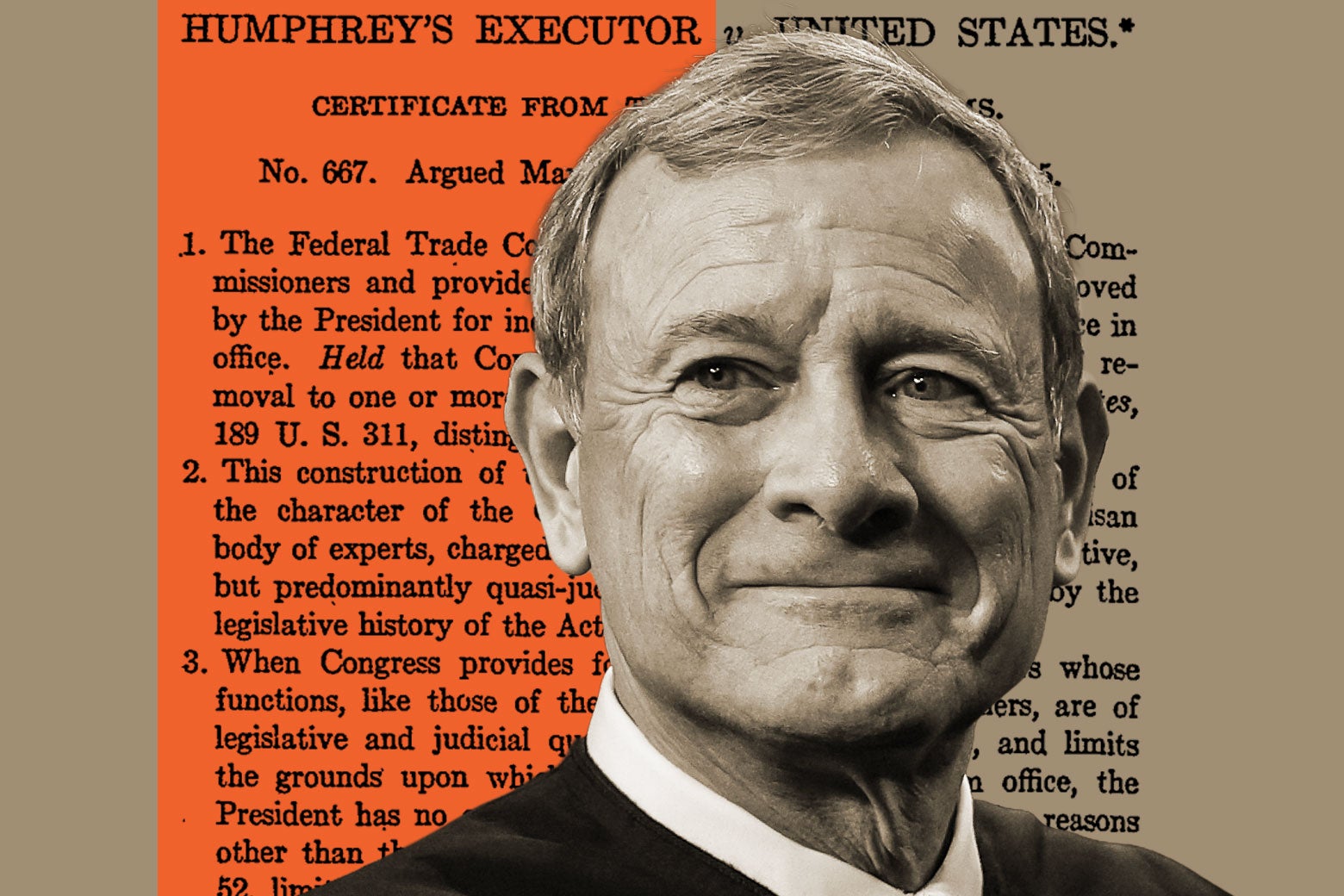
"Chief Justice John Roberts has been working for years to ensure that a president's power is as unchecked as possible. Roberts has advanced the unitary executive theory, which basically envisions a president who can fire anyone in the executive branch at any time at will. Project 2025, which Donald Trump repeatedly denied ties to during his run for the White House in 2024, asserted that a president has absolute authority over the executive branch and all of its employees."
"It called on Trump to demand that the Roberts court formally overrule a case called Humphrey's Executor v. United States, which approved certain kinds of executive agencies whose directors could not be removed without cause. It hears such a case later in the term, which opened this week. But the Roberts court has already laid the groundwork for this particular Project 2025 mission."
"Five years ago, in Seila Law v. Consumer Financial Protection Bureau, Roberts authored the court's declaration that Congress did not have the authority to protect the director of the CFPB from removal even though federal law creating the bureau specified that its director could be removed only on the grounds of "inefficiency, neglect of duty, or malfeasance in office." Roberts asserted that allowing Congress to impose such conditions for termination of the CFPB's director violated the "separation of powers," although he did not expressly overrule Humphrey's Executor."
Chief Justice John Roberts has pursued expansion of presidential authority through judicial endorsement of the unitary executive theory, which envisions a president with broad removal power over executive officials. Project 2025 advocated absolute presidential control over the executive branch and urged overruling Humphrey's Executor v. United States, which protects certain agency heads from at-will removal. The Roberts court signaled alignment with that agenda by limiting Congress's ability to insulate agency directors from removal in Seila Law v. Consumer Financial Protection Bureau. In Seila Law Roberts held that statutory protection of the CFPB director violated separation of powers while leaving Humphrey's Executor not expressly overruled.
Read at Slate Magazine
Unable to calculate read time
Collection
[
|
...
]